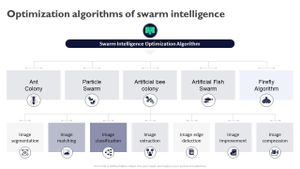US stocks fell sharply Monday as investors weighed the potential impact on the US economy and corporate profits following President Donald Trump's imposition of trade tariffs on key trading partners. According to reports from Reuters, by 09:35 ET, the Dow Jones Industrial Average had plummeted 395 points, or 0.9%, indicating growing unease among market players.
On Saturday, Trump signed an executive order imposing 25% import duties against Canada and Mexico, alongside additional 10% duties on China. This action, beginning February 4, affects all imports from these countries, and aims to curb the illegal flow of drugs and immigrants across the US border. The tariffs cover various products but impose lighter sanctions on oil and gas imports from Canada.
Concerns about inflation spurred by the tariffs have dominated discussions among financial analysts and investors. Analysts at Capital Economics warned of looming inflation spikes due to the added import costs, which will largely be borne by domestic buyers. They noted, “The resulting surge in US inflation from these tariffs and other future measures is going to come even faster and be larger than we initially expected.” This change may hinder the Federal Reserve's capacity to lower interest rates as anticipated, confounding economic forecasts.
Meanwhile, the earnings season gears up with many major corporations ready to report their financials amid heightened market tension. Companies such as General Motors and Ford have been particularly hard-hit as they prepare for the ramifications of the tariffs, with GM emphasizing its production facilities across Mexico.
Market volatility surged on Monday, following Trump's tariff announcement over the weekend as many investors braced for another potential trade war. Forecasters see the 25% tariffs on Canada and Mexico and 10% tariffs on China as significant risks, potentially curtailing economic growth. Yet, not all financial experts agree on the tariff's impacts. Some argue the tariffs could primarily serve as bargaining tools rather than long-standing measures.
Bank of America indicated these tariffs against China might persist as part of larger geopolitical conflicts. They remarked, “While there might be some reductions or exclusions, we think tariffs will largely remain in place.” Conversely, UBS expressed skepticism about the longevity of tariffs against Canada and Mexico, underscoring the US administration's inclination to avoid jeopardizing economic growth or spurring inflation.
The concerns extend beyond the stock market to consumer behavior and economic health, with many analysts predicting the potential for increased prices on goods. James Knightley from ING Economics noted, “Much of the cost increase caused by tariffs will be passed onto US consumers,” which means low-income households will feel the weight of these tariffs disproportionately.
Local markets have also reacted dramatically to the news. Tariffs will typically reduce spending power among US consumers and could result in increased prices for goods ranging from cars to everyday household products. The continuing trade tensions, particularly concerning the import of oil—40% of which is sourced from Canada and Mexico—may also push prices upwards, with US crude futures seeing their value rise thereafter.
Despite the turbulent environment, the economic outlook remains uncertain. Trump announced on Monday the tariffs on Mexico would be delayed for one month following negotiations with Mexican President Claudia Sheinbaum, who agreed to send more troops to curb drug trafficking across the border. This announcement led to significant recovery in market losses during midday trading.
Yet, the proposed tariffs on Canada and China remain firmly on the table, with the timeline for implementation looming just around the corner. Analysts predict the tariffs might lead to heightened inflation, possibly resulting in consumer goods becoming even more expensive.
Further complicate matters, reputable institutions like Goldman Sachs predict these tariffs will harm S&P 500 earnings and, if stuck to, may result in lower overall economic growth within the U.S. Similar sentiments were echoed at Capital Economics, where they forecasted GDP loss as tariffs weigh heavily on the economy.
Meeting notes from the Federal Reserve show growing concern as well; President Collins remarked on the expected impact of broad tariffs. The care with which Fed leaders approach their next moves reflects the underlying uncertainty—the kind of unpredictability marked by powerful economic shifts.
Both Collins and Atlanta Fed President Raphael Bostic have suggested their stakeholders will need to closely observe how inflation expectations evolve and may have difficulty absorbing any sudden price increases stemming from tariffs. Overall inflation could potentially rise by 0.5 to 1 percentage point if tariffs are enacted long-term.
While the future of tariffs remains uncertain, one thing is clear: the imposition of these duties has stirred fears among investors, causing jitters across financial markets. They pose recurring threats not only to businesses but also to the everyday American consumer who might bear the brunt of increased prices. The impact of Trump's tariff strategy could reshape economic expectations long after the dust settles.



